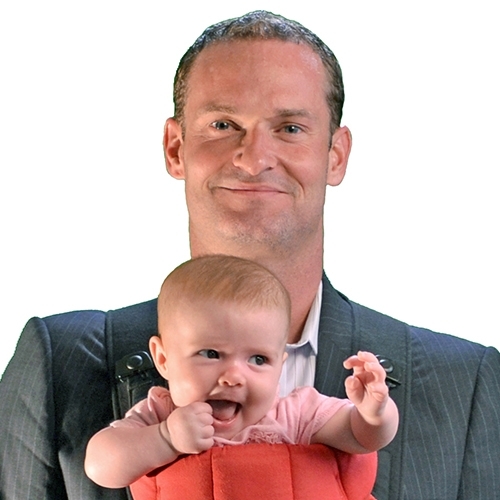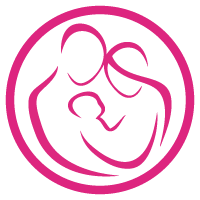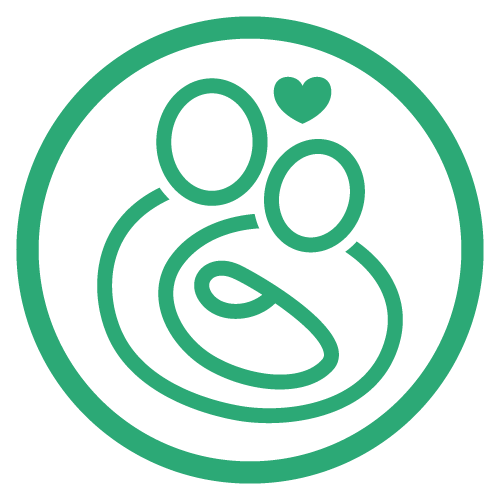 Perinatal Mental Health Online Course(s) & Continuing Education
Perinatal Mental Health Online Course(s) & Continuing Education
Access the latest clinical skills and research for Perinatal Mental Health for Postpartum professional training. These Perinatal Mental Health online courses provide practice-changing skills and valuable perspectives from leading global experts. This Perinatal Mental Health education has been accredited for a variety of CEUs / CERPs and can be accessed on-demand, at your own pace.

Including Fathers and Partners to Support Perinatal Mental Health and Marriages

With over 25 years’ experience as a relationship counsellor, parents’ group facilitator, mental health educator, partner and mum, Elly Taylor has become an internationally known parenthood preparation and perinatal relationship expert and the award-winning author of Becoming Us. Elly’s passion is preparing parents for a happy and healthy family—at any stage in their parenthood journey, and especially in a challenging world. Her Becoming Us approach includes fathers and partners in all aspects of pregnancy, birth and beyond, harnesses the attachment bond between couples to stabilise them through the life changes and challenges of parenthood and links both parents into community services to support the mental, emotional and relational wellbeing of the whole family.
Elly has served as an advisor for numerous university research projects and her ground-breaking Becoming Us developmental framework has now become a comprehensive multi-disciplinary education and professional training and courses for parents. In a full circle moment, Elly recently trained midwives, allied health and therapy professionals in her local community and now Becoming Us Nest Building Sessions are preparing expectant parents in the hospitals where her children were born. Elly lives in Sydney, Australia with her firefighter husband, their three kidults and an abundance of pets.
Topic: Communication and Conflict - How Connection Supports Both - [View Abstract]
Topic: Including Fathers and Partners to Support Perinatal Mental Health and Marriages - [View Abstract]
"The “transition” into parenthood is supposed to be a time of joy, love and wonder, and yet research paints a very different picture: currently 1 in 3 mothers and 1 in 5 fathers suffer from anxiety or depression during the perinatal period. You might also be shocked to know that 92% of couples report increased conflict and 67% a decline in relationship satisfaction in the first few years of family.
And referring to parenthood as a “transition” is misleading – there are, in fact, multiple transitions for couples to navigate.
Including fathers or partners in pregnancy, birth and the multiple transitions of early parenthood helps to reduce both mothers' and fathers' risks for anxiety, depression and relationship problems and supports both parents' mental, emotional and relationship health, so the whole family can thrive. In this presentation, practitioners will learn simple and easy ways to include fathers and partners, even if they’re not in the room, and discover how small things can make a big difference to a family’s future.

View Details / Enroll

Infant Mental Health: What Does It Look Like in Practice?

Gretchen Becker Crabb is an Occupational Therapist, Licensed Professional Counselor, and Endorsed Infant Mental Health Therapist. She is also a Certified Lactation Counselor, La Leche League Leader, and Brazleton Newborn Observation (NBO) trainer.
Gretchen’s passion is rooted in fostering lifelong relationships and connection through co-regulation in pregnancy and beyond. Her unique approach to lactation support and therapy is rooted in culturally attuned sensory, somatic, and trauma-informed mental health techniques.
Gretchen owns and operates a private practice in Madison, Wisconsin. For 21 years, she has provided developmental, trauma, feeding, and attachment support for tiny humans and their caregivers in birth to three, preschool, private practice, and peer group settings. Gretchen is an international speaker, reflective supervisor, and infant mental health consultant. In these roles, she offers compassionate, experiential, and reflective holding spaces for professionals. She is a proud United States Air Force spouse and mother of three boys.
Topic: Infant Mental Health: What Does It Look Like in Practice? - [View Abstract]
Topic: Scent-Sational Connections: The Role of Olfaction in Development - [View Abstract]
Topic: Sensory Processing and Breast/Bodyfeeding: Using Co-Regulation to Support the Feeding Relationship - [View Abstract]
Topic: Vestibular Processing: Using the Sixth Sense to Support Lactation and Parent/Infant Relationships - [View Abstract]
In this presentation, we will dive into the world of infant mental health and explore the unique ways that providers promote relationship development in families and communities for the first five years and beyond. We will discuss the basic philosophies and strategies used in the field of infant mental health, then engage together in an interactive and thought-provoking case study. Somatic techniques, reflective strategies and cultural considerations will be woven throughout to deepen learning and curiosity-- bringing the concepts to life and promoting the integration of infant mental health concepts into your daily practice.

Integration of the Science of Safety and Resilience into Perinatal Care: A 5 Step Process

Kate White is and award-winning craniosacral and massage therapist, prenatal and early childhood educator. She is trained in somatic therapies, prenatal and perinatal health, lactation, brain development, infant mental health, and has specialized in mother-baby dyad care using somatic prevention and trauma healing approaches for nearly 20 years. She is a mother of two children, holds a BA and MA in Communication, is a Registered Craniosacral Therapist in the Biodynamic Craniosacral method and a Somatic Experiencing® Practitioner. Her work combines somatic therapy with brain development to help give families with babies and small children the best possible start. She is Founding Director of Education for the Association for Prenatal and Perinatal Psychology and Health from 2013 – 2018 where she managed a large online educational program for professionals. She currently co-directs this program, administering an online program for parents and parent professionals, runs a private practice and offers her own seminars through the Center for Prenatal and Perinatal Programs, ppncenter.com.
Topic: Best Practices in Prenatal and Perinatal Psychology and Somatic Health for Optimal Birth Outcomes - [View Abstract]
Topic: Integration of the Science of Safety and Resilience into Perinatal Care: A 5 Step Process - [View Abstract]
Topic: The Science of Safety and Trauma Specific Recognition to Improve Birth Outcomes: What Does It Mean for the Midwife? - [View Abstract]
Topic: “It Was Right but so Wrong:” Helping Families Make Sense of Difficult Births with Trauma Sensitive and Prenatal and Perinatal Healing Approaches - [View Abstract]
Maternity practice in the United States has come under scrutiny over the past year due to the increase in maternal mortality. Data also show that maternal and infant morbidity are big concerns for prenatal and perinatal practitioners; for every woman who dies during, labor and delivery 70-80,000 more report almost dying. The news reports “obstetrical violence” and birth trauma as common for women all over the world. Infants are also affected by birth trauma, especially neonatal intensive care and separations from their mothers. The trauma-informed care model is starting to be integrated into maternity care as many providers are screening for perinatal mood disorders and childhood maltreatment sometimes referred to as Adverse Childhood Experiences. This presentation will review how current psychological, somatic psychological and mental health approaches include the autonomic nervous system responses to threat and overwhelm, or the science of safety, and processes to help patients feel resilient, or acknowledge their capacity to cope in the face of adversity. Then, a new five point process will be outlined that may improve perinatal outcomes, refine the care of mother-baby dyad, and support birth and maternity professionals of all kinds.

View Details / Enroll

Interdisciplinary Neuroprotective Practice Standards and Perinatal Mental Health in the NICU

Dr. Craig lives in metro Atlanta, GA., is an Associate Professor and the Department Chair of Brenau University’s School of Occupational Therapy program. She has been practicing for 35 years, received her degree in OT at the Medical College of Georgia, her MBA from the University of Alaska-Fairbanks, and her PhD in Infant and Childhood Disorders with emphasis in Mental Health and Developmental Disabilities from Fielding Graduate University. Jenene currently serves as the Director of Education for National Association of Neonatal Therapists (NANT). She is also on the executive committee of the Board of Directors for the National Perinatal Association. In addition to consulting with several local NICUs, Jenene works PRN at a regional Level III NICU. She serves as a national speaker for the care of premature infants and families embattled in the stressful environment of the NICU. Jenene’s personal passion is to support multidisciplinary work in the NICU with a focus on parent-infant outcomes.
Hospitalization of a baby in a Neonatal Intensive Care Unit (NICU) has been described as a traumatic experience for both parents and baby leading to higher rates of postpartum depression and posttraumatic stress disorder in parents and to adverse developmental, cognitive and behavioral outcomes in their infants. The focus of care in the NICU has been broadening and evolving to emphasize the importance of supporting the family-infant relationship, since ultimately, the well-being of the family affects the well-being of the baby. Research documents that NICU parents both desire and benefit from psychosocial support from NICU staff, yet many staff, including neonatologists and neonatal nurses, do not feel they have adequate skills to support these needs. NICU staff need knowledge and tools beyond what typical healthcare education provides. Interdisciplinary recommendations for work toward best practice around psychosocial support of infants/parents and staff are presented.


Jayashri KULKARNI commenced her appointment as Professor of Psychiatry, The Alfred and Monash University in 2002. She directs a large psychiatric research group, the Monash Alfred Psychiatry Research Centre (MAPrc), with approximately 150 staff and students. The Centre is dedicated to discovering new treatments, new understanding and new services for people with a range of mental illnesses.
Jayashri Kulkarni completed her MBBS degree in 1981 at Monash University and worked mainly in Emergency Medicine before deciding to specialise in Psychiatry. She became a Fellow of the Royal Australian and New Zealand College of Psychiatrists in 1989 and was awarded a PhD from Monash University in 1997 for her thesis “Women and Psychosis”. Jayashri has pioneered the novel use of estrogen as a treatment for schizophrenia and is internationally acknowledged as a leader in the field of reproductive hormones and their impact on mental health. An expert in Women’s Mental Health, Jayashri was elected the President of the International Association of Women’s Mental Health, a role she commenced in 2017.
Women suffering major mental illness such as schizophrenia or bipolar affective disorder face multiple challenges in pregnancy. The need to balance maternal mental health with fetal development is a crucial challenge. The best information available on the safety profile of antipsychotic, antidepressant and other medications is needed, but this is often difficult to access, or is contradictory. This presentation will include data on medication safety as well as associated other management aspects for the woman with special needs due to mental illness. Monitoring and treatment of gestational diabetes, infant drug withdrawal syndromes, and mental health support for the woman will be discussed.

Out of the Blue: Post-Partum Mood Disorders and Breastfeeding

Dianne Cassidy is a Lactation Consultant in Rochester, New York with Advanced Lactation Certification. Dianne works in Private Practice, and in a busy Pediatrician office supporting mothers and babies. She also teaches prenatal breastfeeding and childbirth in the hospital setting. In the fall of 2013, Dianne completed her MA in Health and Wellness/Lactation. She is dedicated to serving mothers and babies, and has the unique ability to identify with the needs and concerns of new mothers. Dianne has worked extensively with women who have survived trauma, babies struggling with tongue tie, birth trauma, milk supply issues, attachment, identifying latch problems, returning to work and breastfeeding multiples.
Dianne has 3 biological children, including twins, 3 step children and a wonderful husband. Dianne is an author and public speaker and enjoys teaching caregivers how to support new families through breastfeeding struggles.
Topic: Out of the Blue: Post-Partum Mood Disorders and Breastfeeding - [View Abstract]
Topic: Paying it Forward, Support for the Breastfeeding Mother and Baby - [View Abstract]
Topic: Traumic Life Experiences and how they Affect the Breastfeeding Mother - [View Abstract]
It is well known that breastfeeding is beneficial to both mother and baby. What happens if breastfeeding is not well established? Researchers are looking closer to postpartum mood disorders and what influence breastfeeding may have in a new mother's psychological well being.
Postpartum depression has been linked to low breastfeeding rates, as well as lower duration rates. Postpartum depression falls under the diagnosis of "major depressive disorder with peripartum onset during pregnancy or in the weeks following delivery" (Bascom & Napolitano, 2015). It has been estimated that postpartum mood disorders, strike an estimated 10-20% of new mothers (Bascom & Napolitano, 2015). However, it has been argued that this number reflects only those women who have sought help for their symptoms. The probability that more women are affected by postpartum mood disorders is high.
Postpartum mood disorders adversely affect not only the health of the mother, but also the relationship with her partner, interaction with her newborn and infant growth (Yusuff, Tang, Binns, Lee, 2015). There are several predictors that can help determine if a woman is at risk for postpartum mood disorders, including mental health history, social status, and labor and delivery. Researchers have found that when more medical interventions were used during labor, the higher the depressive symptoms for the mother. This presentation will aid personnel working with new families to be aware of the signs and syptoms of postpartum mood disorders and how to preserve the breastfeeding relationship.

View Details / Enroll

Paternal Perinatal Mental Health: Yes, It's a Thing, and What to Do About It

Dr. Singley is a San Diego-based board certified psychologist and Director of The Center for Men’s Excellence. His research and practice focus on men’s mental health with a particular emphasis on reproductive psychology and the transition to fatherhood. Dr. Singley won the American Psychological Association’s 2017 Practitioner of the Year Award from the Division on Men & Masculinities. He is Past President of the APA’s Section on Positive Psychology and currently serves on the Board of the APA’s Society for the Psychological Study of Men and Masculinities as well as Postpartum Support International's Advisory Council. He conducts trainings around the country to assist individuals and organizations to enhance their level of father inclusiveness and founded the grant-funded Basic Training for New Dads, Inc nonprofit and Padre Cadre social networking application just for dads in order to give new fathers the tools they need to be highly engaged with their infants as well as their partners. In his free time, Dr. Singley likes to cook, surf, read, and drive his two sons to activities all over town so they can’t escape his annoying shrinky questions. Follow him @MenExcel and www.facebook.com/MenExcel/.
Topics covered will include common misconceptions about men’s perinatal mental health along with best evidence-based practices in screening, assessment, and interventions to enhance new fathers’ mental health and engagement with their children as well as their partners.


Angel Montfort, Psy.D., PMH-C is a licensed clinical psychologist, mother of four, and the founder of the Center for Maternal Mental Health, a therapy practice dedicated to serving women throughout all stages of motherhood. She has always gravitated toward treating women and became passionate about perinatal mental health while working in a Women's Clinic within a hospital setting. At first it was a way to meet the needs of her patients and it quickly led to an understanding of her own postpartum experiences, which deepened her connection to this work.
In her practice, Dr. Montfort addresses concerns such as postpartum depression, postpartum anxiety, birth trauma, perinatal loss, infertility, and adjustment to motherhood.
Dr. Montfort shares educational information on her Instagram account (@drangelmontfort) and her website (www.cfmmh.com) in an effort to validate and uplift moms who are struggling through a time that is expected to be the most joyous. Her expertise in perinatal mental health has been featured in a number of media outlets including Forbes, Healthline, and ScaryMommy. She believes that if we make space for both the highs and lows of motherhood, we set new moms up for a more balanced experience.
Perinatal Anxiety is included under the umbrella of Perinatal Mood & Anxiety Disorders which are experienced by approximately 1 in 5 mothers. This particular type of anxiety is characterized by intense uncontrollable worry, panic attacks, insomnia, racing thoughts and a general fear that something bad will happen (typically to one’s infant). Although worrying about one’s pregnancy, delivery, and baby is very common; these worries become concerning when they are all-consuming and start to interfere with one’s ability to function. This presentation will focus on ways to identify perinatal anxiety in your patients, the importance of screening throughout pregnancy and postpartum, strategies to share with your patients for managing their anxiety such as relaxation exercises, support groups, education, physical movement, mindfulness, etc., and resources to provide to patients in need of mental health treatment.

View Details / Enroll


Dr. Cindy-Lee Dennis is a Professor in the Lawrence S. Bloomberg Faculty of Nursing and the Faculty of Medicine, Department of Psychiatry at the University of Toronto. She holds a Canada Research Chair in Perinatal Community Health and was recently appointed the Women’s Health Research Chair at Li Ka Shing Knowledge Institute, St. Michael’s Hospital. She is currently the principal investigator of seven large, multi-site studies and is a co-investigator on twenty-four other research projects concerning maternal, paternal, and infant health outcomes. She holds over $23 million in funding from the Canadian Institutes of Health Research (CIHR) and has over 170 peer-review publications. She is the lead author on eight Cochrane systematic reviews and has provided over 150 invited presentations.
Perinatal mental health is a long-standing important public health issue worldwide with well documented negative effects on children, including delayed cognitive and language development, higher rates of behavioral problems, insecure or disorganized attachment, lower school-leaving grades and higher rates of depression at 16 to 18 years of age. This presentation will discuss the prevalence of perinatal mental health issues including depression, anxiety, and comorbid depression and anxiety. Risk factors will be outlined and consequences highlighted. Good principle for screening will be discussed to ensure accurate identification and follow-up. Preventive strategies based on best evidence will be presented and a and innovative treatment option will be discussed that is based on maternal preference. The use of technology will be reviewed to increase access and clinical utility and a new approach to the management of perinatal mental health will be presented.

Perinatal Mood & Anxiety Disorders: Essential Clinical Skills

Dr. Christina Hibbert is the bestselling author of This Is How We Grow, Who Am I Without You, 8 Keys to Mental Health Through Exercise, & the forthcoming Mastery of Motherhood (www.MasteryOfMotherhood.com). She is a clinical psychologist specializing in women’s and maternal mental health, parenting, grief/loss, self-worth, and personal growth, and host of the weekly web radio/TV show, “Motherhood.”.Dr. Hibbert is a popular speaker, founder of the Arizona Postpartum Wellness Coalition, and producer of the internationally-sold DVD, Postpartum Couples. A mother of six, Christina was named “Mother of the Year” AZ, 2018, and lives in Flagstaff, AZ, with her husband and family. Learn more about Dr. Hibbert through her award-winning website and blog, “The Psychologist, The Mom, & Me,” at www.DrChristinaHibbert.com.
Knowing the signs and symptoms of perinatal mood and anxiety disorders(PMADs) is an important starting point, but what happens next? How do you bring up PMADs and maternal mental health, assess, know when to refer, and ensure clients actually receive the treatment they need? Dr. Christina Hibbert reassures, “You don’t have to know it all.” Whether you’re a medical, mental health, or other support professional working with perinatal women and families, understanding the fundamental clinical skills essential to perinatal mental health will provide the quality of care your clients and patients deserve. What can you say? How can you ensure the proper diagnosis? And what are the resources when you need to refer? Learn these skills and more in this inspirational, informative presentation.

View Details / Enroll
















